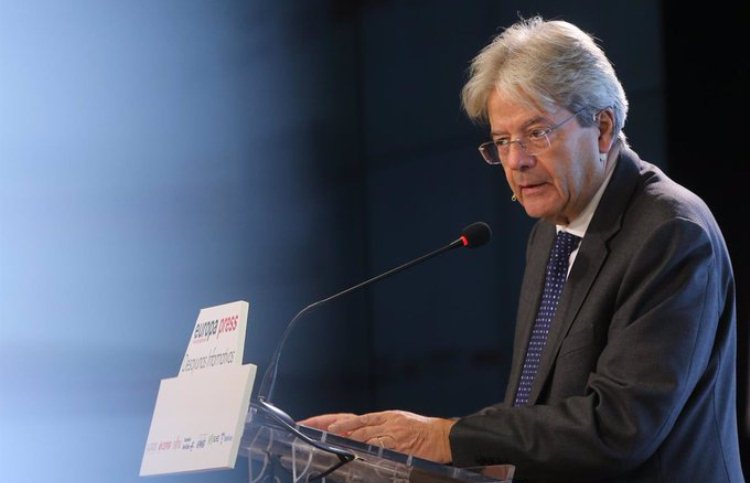The Diplomat
The European Commissioner for the Economy, Paolo Gentiloni, said yesterday that the recovery with European funds can be a “great opportunity” to transform the Spanish economy in a “sustainable and lasting” way and demanded that the labor reform negotiated by the Government addresses the Commission’s concerns about the duality and precariousness of the labor market “without weakening the dynamism of the Spanish system and companies”.
“The economic shock was very strong in Europe, particularly in countries like Spain,” said the former Italian Foreign Minister during his participation in the Desayunos de Europa Press, on the occasion of his working visit to Madrid. For this reason, he explained, the objective of the European recovery strategy is “to give more resources to the most affected countries” and, in these circumstances, “Spain will receive around 70,000 million euros, 20% of the total subsidies for EU countries”, he continued. These funds, he added, represent a “great opportunity” for the economic transformation of Spain, to increase investments and to rebuild a “stronger, more sustainable and more durable” Spanish economy.
“Spain was one of the first EU countries to send its Recovery Plan because it was also one of the countries hardest hit by the pandemic” and, therefore, it is foreseeable that Spain will be one of the “first” EU countries to process the application for the disbursement of the next tranche of 10,000 million euros of European funds, something that should happen “very soon”. Spain expects to access €69.5 billion in non-repayable grants over the next six years, half of the €140 billion allocated to Spain in the Next Generation EU recovery plan. According to the timetable envisaged by Brussels, Spain should receive a total of 19 billion this year. The first 9 billion – 13% of the money that corresponds to Spain in subsidies – arrived last August in the form of an advance and an additional disbursement of 10 billion is expected to be approved in the coming weeks, which will depend on the fulfillment of 50 targets agreed by Madrid with Brussels.
According to Gentiloni, Spain has shown an “impressive start with the plan, but it is essential to continue with the next crucial steps”. In that sense, he explained, the Commission has put its “focus” on the implementation of the “ambitious reforms” and investments that Spain has agreed with Brussels. “Most of the reforms have already been implemented and now the important thing is to move forward in the last quarter of the year on the most complex reforms, such as labor and pension reform,” continued the commissioner, who announced that, at the beginning of November, the “missions” will begin to check the status of the reforms and, therefore, to determine the disbursement of the 10,000 million euros.
Regarding the labor reform, Gentiloni expressed his confidence that the Government of Pedro Sánchez will address, in the negotiations with the social agents, the problem of the duality of the labor market, the excessive number of precarious workers and the improvement of the collective bargaining mechanism, all this “without weakening the dynamism of the Spanish system and of the companies”.
On Monday, Gentiloni had an intense working day in Madrid that included meetings with the President of the Government, Pedro Sánchez; the First Vice-President and Minister of Economic Affairs, Nadia Calviño; and the Second Vice-President and Minister of Labor, Yolanda Díaz. The Commissioner also spoke yesterday at the Joint Commission for the European Union of the Congress and the Senate.






